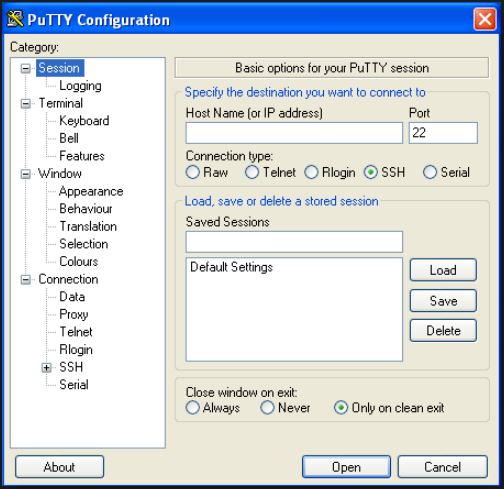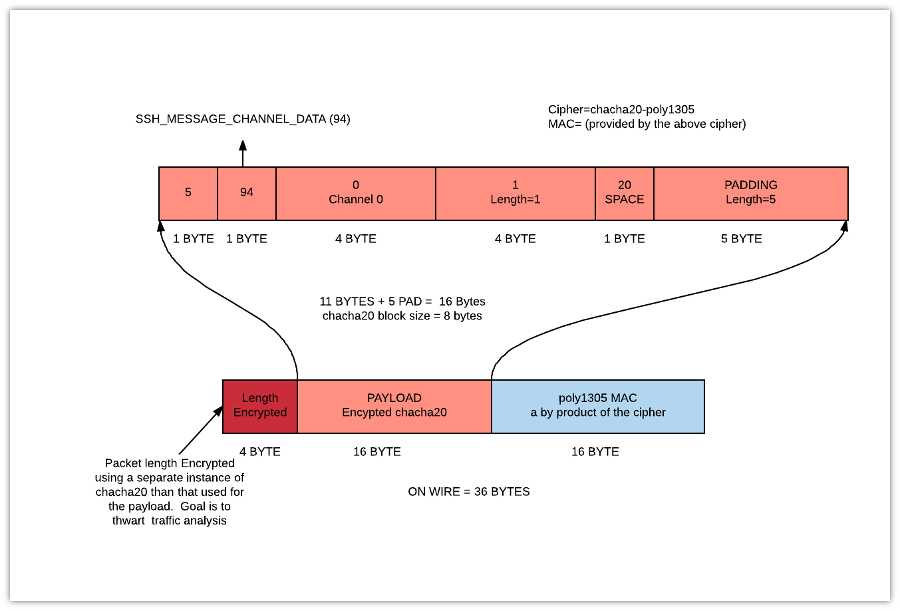- CURLcode curleasysetopt(CURL.handle, CURLOPTSSHAUTHTYPES, long bitmask); DESCRIPTION. Pass a long set to a bitmask consisting of one or more of CURLSSHAUTHPUBLICKEY, CURLSSHAUTHPASSWORD, CURLSSHAUTHHOST, CURLSSHAUTHKEYBOARD and CURLSSHAUTHAGENT.
- If you don't have an SSH key pair, open a bash shell or the command line and type in: ssh-keygen -t rsa -b 2048. This will generate the SSH key. Press Enter at the following prompt to save the key in the default location (under your user directory as a folder named.ssh).
- When you type ssh targaryen, the ssh client reads the file and apply the options from the first match, which is Host targaryen. Then it checks the next stanzas one by one for a matching pattern. The next matching one is Host.!martell (meaning all hosts except martell), and it will apply the connection option from this stanza.
As someone who knows little about cryptography, I wonder about the choice I make when creating ssh-keys. Ssh-keygen -t type, where type is either of dsa,rsa and ecdsa. Googling can give some information about differences between the types, but not anything conclusive. So my question is, are there any 'easy' answers for developers/system administrators with little cryptography knowledge, when to choose. An SSH client connects to a Secure Shell server, which allows you to run terminal commands as if you were sitting in front of another computer. But an SSH client also allows you to 'tunnel' a port between your local system and a remote SSH server. There are three different types of SSH tunneling, and they're all used for different purposes.
In every SSH/SFTP connection there are four keys (or two key-pairs) involved. This article explains a difference between them and what keys an SFTP client user needs to care about.
The SSH employs a public key cryptography. A public-key cryptography, also known as asymmetric cryptography, is a class of cryptographic algorithms which requires two separate keys, one of which is secret (or private) and one of which is public.1 Together they are known as a key-pair. In SSH, the public key cryptography is used in both directions (client to server and server to client), so two key pairs are used. One key pair is known as a host (server) key, the other as a user (client) key.
A user private key is key that is kept secret by the SSH user on his/her client machine. The user must never reveal the private key to anyone, including the server (server administrator), not to compromise his/her identity.
To protect the private key, it should be generated locally on a user's machine (e.g. using PuTTYgen) and stored encrypted by a passphrase. The passphrase should be long enough (that's why it's called passphrase, not password) to withstand a brute-force attack for a reasonably long time, in case an attacker obtains the private key file.
Different file formats are used to store private keys. WinSCP supports PuTTY format, with .ppk extension.
A user public key is a counterpart to user private key. They are generated at the same time. The user public key can be safely revealed to anyone, without compromising user identity.
To allow authorization of the user on a server, the user public key is registered on the server. In the most widespread SSH server implementation, the OpenSSH, file ~/.ssh/authorized_keys is used for that.
Learn more about public key authentication in general and how to setup authentication with public keys.
Advertisement
A host private key is generated when the SSH server is set up. It is safely stored in a location that should be accessible by a server administrator only. The user connecting to the SSH server does not need to care about host private key in general.
Oracle database cheat sheet. A host public key is a counterpart to host private key. They are generated at the same time. The host public key can be safely revealed to anyone, without compromising host identity.
To allow authorizing the host to the user, the user should be provided with host public key in advance, before connecting. The client application typically prompts the user with host public key on the first connection to allow the user to verify/authorize the key. The host public key is then saved and verified automatically on further connections. The client application warns the user, if the host key changes.

- The text is partially copied from Wikipedia article on Public-key cryptography. The text is licensed under GNU Free Documentation License.Back

In every SSH/SFTP connection there are four keys (or two key-pairs) involved. This article explains a difference between them and what keys an SFTP client user needs to care about.
The SSH employs a public key cryptography. A public-key cryptography, also known as asymmetric cryptography, is a class of cryptographic algorithms which requires two separate keys, one of which is secret (or private) and one of which is public.1 Together they are known as a key-pair. In SSH, the public key cryptography is used in both directions (client to server and server to client), so two key pairs are used. One key pair is known as a host (server) key, the other as a user (client) key.
A user private key is key that is kept secret by the SSH user on his/her client machine. The user must never reveal the private key to anyone, including the server (server administrator), not to compromise his/her identity.
To protect the private key, it should be generated locally on a user's machine (e.g. using PuTTYgen) and stored encrypted by a passphrase. The passphrase should be long enough (that's why it's called passphrase, not password) to withstand a brute-force attack for a reasonably long time, in case an attacker obtains the private key file.
Different file formats are used to store private keys. WinSCP supports PuTTY format, with .ppk extension.
A user public key is a counterpart to user private key. They are generated at the same time. The user public key can be safely revealed to anyone, without compromising user identity.
To allow authorization of the user on a server, the user public key is registered on the server. In the most widespread SSH server implementation, the OpenSSH, file ~/.ssh/authorized_keys is used for that.
Learn more about public key authentication in general and how to setup authentication with public keys.

Advertisement
A host private key is generated when the SSH server is set up. It is safely stored in a location that should be accessible by a server administrator only. The user connecting to the SSH server does not need to care about host private key in general.
A host public key is a counterpart to host private key. They are generated at the same time. The host public key can be safely revealed to anyone, without compromising host identity.

- The text is partially copied from Wikipedia article on Public-key cryptography. The text is licensed under GNU Free Documentation License.Back
In every SSH/SFTP connection there are four keys (or two key-pairs) involved. This article explains a difference between them and what keys an SFTP client user needs to care about.
The SSH employs a public key cryptography. A public-key cryptography, also known as asymmetric cryptography, is a class of cryptographic algorithms which requires two separate keys, one of which is secret (or private) and one of which is public.1 Together they are known as a key-pair. In SSH, the public key cryptography is used in both directions (client to server and server to client), so two key pairs are used. One key pair is known as a host (server) key, the other as a user (client) key.
A user private key is key that is kept secret by the SSH user on his/her client machine. The user must never reveal the private key to anyone, including the server (server administrator), not to compromise his/her identity.
To protect the private key, it should be generated locally on a user's machine (e.g. using PuTTYgen) and stored encrypted by a passphrase. The passphrase should be long enough (that's why it's called passphrase, not password) to withstand a brute-force attack for a reasonably long time, in case an attacker obtains the private key file.
Different file formats are used to store private keys. WinSCP supports PuTTY format, with .ppk extension.
A user public key is a counterpart to user private key. They are generated at the same time. The user public key can be safely revealed to anyone, without compromising user identity.
To allow authorization of the user on a server, the user public key is registered on the server. In the most widespread SSH server implementation, the OpenSSH, file ~/.ssh/authorized_keys is used for that.
Learn more about public key authentication in general and how to setup authentication with public keys.
Advertisement
A host private key is generated when the SSH server is set up. It is safely stored in a location that should be accessible by a server administrator only. The user connecting to the SSH server does not need to care about host private key in general.
A host public key is a counterpart to host private key. They are generated at the same time. The host public key can be safely revealed to anyone, without compromising host identity.
Ssh Packet Types
To allow authorizing the host to the user, the user should be provided with host public key in advance, before connecting. The client application typically prompts the user with host public key on the first connection to allow the user to verify/authorize the key. The host public key is then saved and verified automatically on further connections. The client application warns the user, if the host key changes.
Types Ssh-keygen
- The text is partially copied from Wikipedia article on Public-key cryptography. The text is licensed under GNU Free Documentation License.Back
